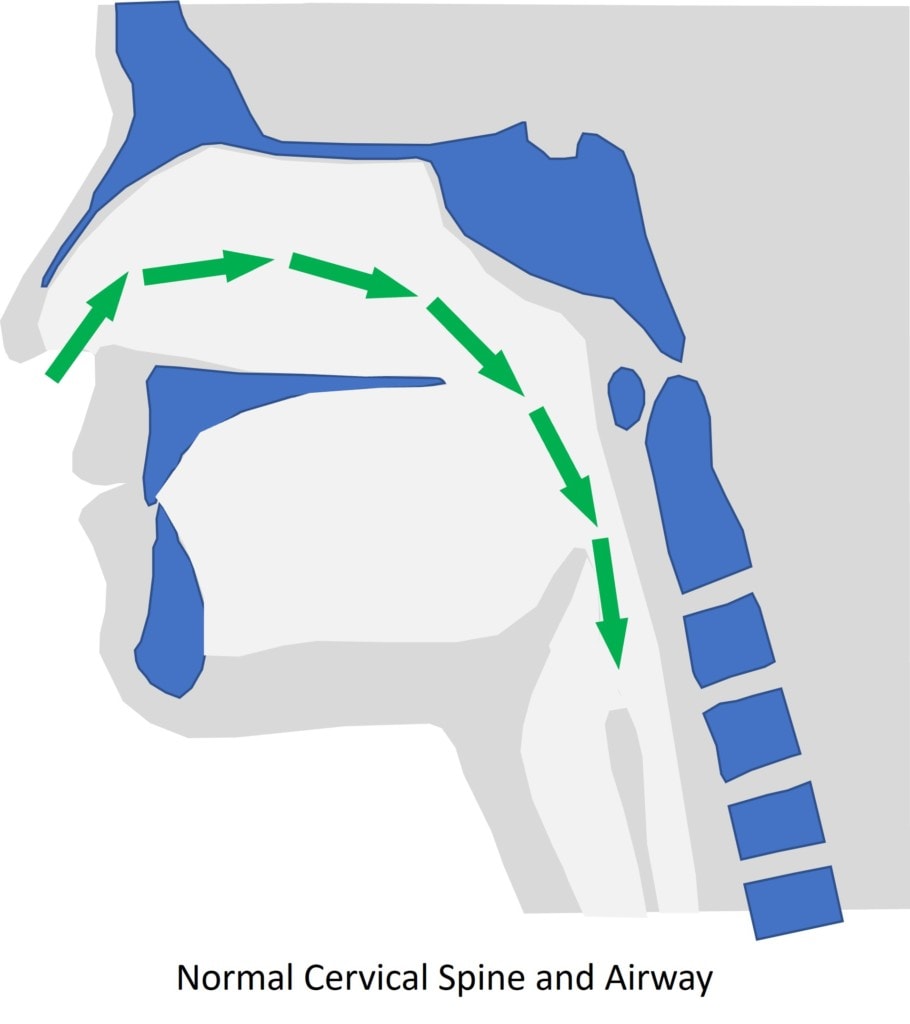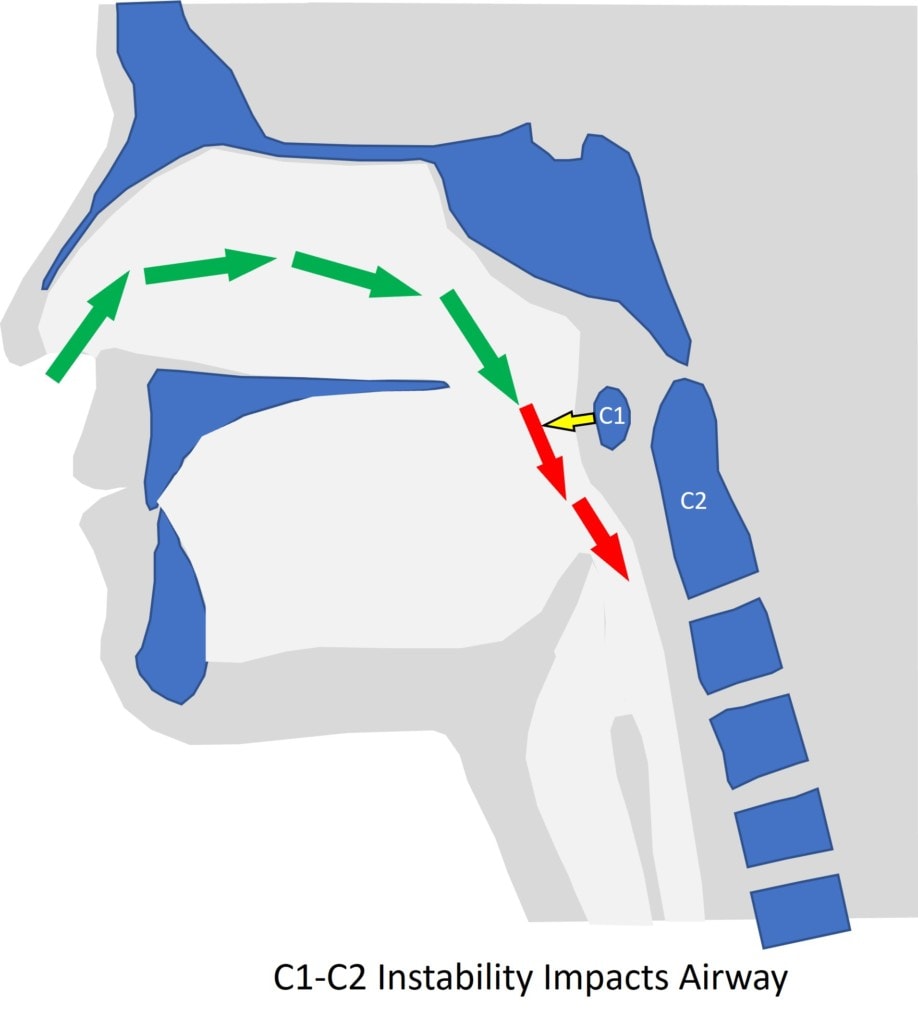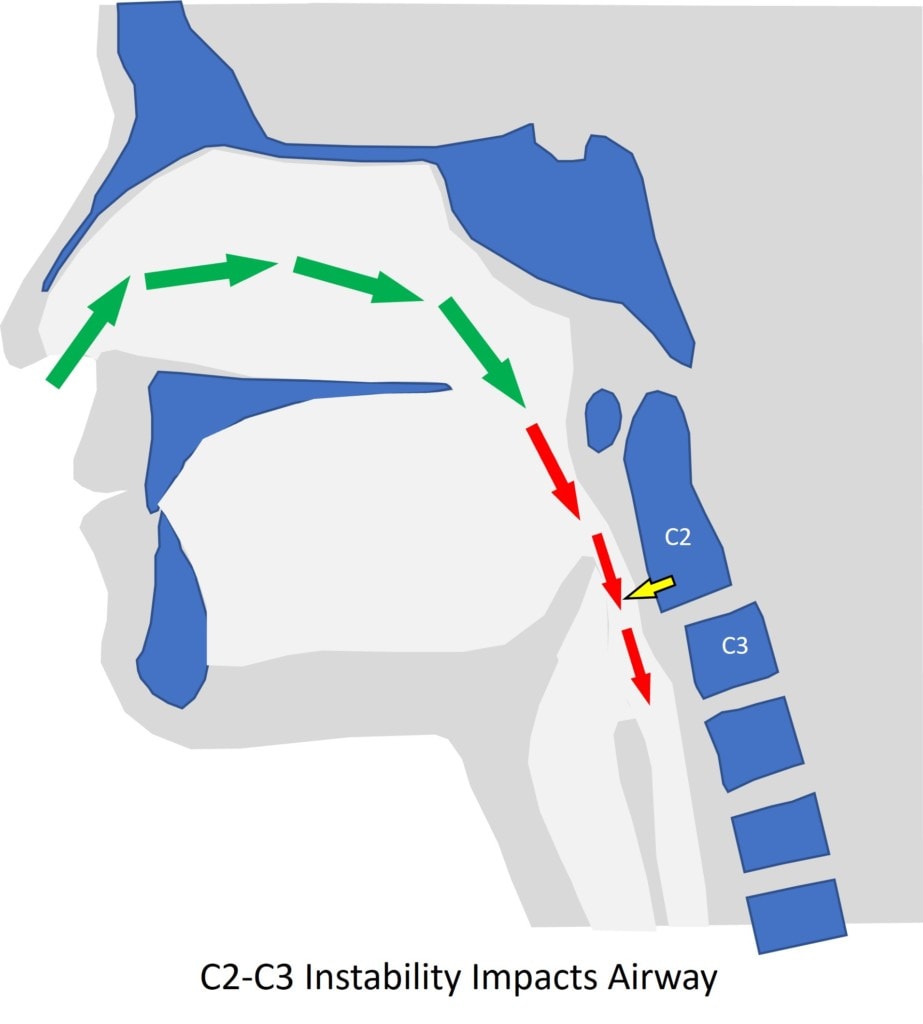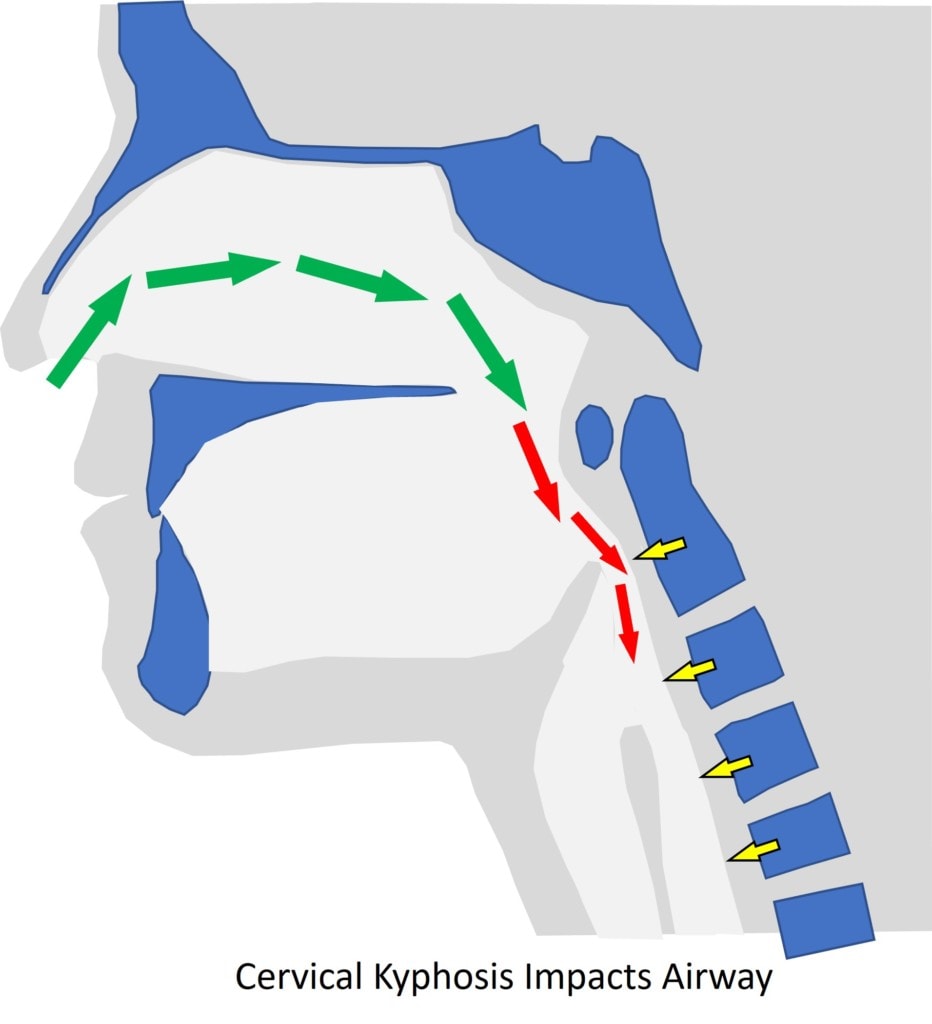Is Your Snoring Being Caused by Your Neck?
In medicine, we know that snoring or what we call “Obstructive Sleep Apnea” is really bad for you. It reduces your oxygen levels, puts stress on your heart, increases your chance for diabetes and stroke, and is in general one of the biggest untreated problems in modern society. However, what you may not have ever considered is that your neck problems could be causing this issue. Let’s dig in.
Sleep Apnea 101
Most of us have no idea that we snore. In fact, it’s not until you have someone sleeping bedside you or in the same room that you get an earful the next morning. While traditionally this has been considered a nuisance problem, recent research has shown that it’s associated with all sorts of serious medical problems. Sleep apnea increases your risk for:
- Developing type 2 diabetes (1)
- Stroke and death (2)
- Heart attack (3)
So if you snore, best to get it checked out by a qualified sleep specialist.
Our Experience
Since I often provide the anesthesia for my patients with cervical injuries and other neck problems, I get to see firsthand what their airway does when they’re asleep and it’s often not pretty. From my cervical instability patients to those with neck surgeries fused in the wrong direction (which is common), they almost all have sleep apnea. Hence, we’re always managing the airway during procedures to keep our patients safe. However, is there research that connects these two?
The Research
Researchers reviewed 21 different studies on this topic and did find a general relationship between the position of the neck vertebrae and sleep apnea (4). Another study found a relationship between changes in the cervical curve due to fusion surgery and sleep apnea (5). Finally, other studies have linked postural changes in the neck curve to this problem (6).
How Does This Happen?
There were no good diagrams online, so I made my own simple illustrations. Here’s a normal-“ish” neck and the airway:

Now look what happens if we add C1-C2 instability (CCI or Craniocervical Instability) where the atlas (C1) moves forward:

The air moving past the back of the throat is now constricted and disturbed. Here’s what happens when we add instability at C2-C3:

The flow of air is even worse! No how about if we add the kyphotic forward head posture that’s so commonly seen today:

Also a problem!
What Can You Do?
First, if you snore, see a sleep specialist. Next, if you think this may be due to a neck problem, get checked out by one of our Regenexx network providers who specializes in cervical issues to see if you need treatment.
The upshot? The neck can cause sleep apnea/snoring and this problem can become medically dangerous. Hence if you have neck problems and you snore, please get it checked out from both angles – a sleep specialist and a doctor who can help your neck problem!
_________________________________________________________
References:
(1) Botros N, Concato J, Mohsenin V, Selim B, Doctor K, Yaggi HK. Obstructive sleep apnea as a risk factor for type 2 diabetes. Am J Med. 2009 Dec;122(12):1122-7. doi: 10.1016/j.amjmed.2009.04.026. PMID: 19958890; PMCID: PMC2799991.
(2) Yaggi HK, Concato J, Kernan WN, Lichtman JH, Brass LM, Mohsenin V. Obstructive sleep apnea as a risk factor for stroke and death. N Engl J Med. 2005 Nov 10;353(19):2034-41. doi: 10.1056/NEJMoa043104. PMID: 16282178.
(3) Porto F, Sakamoto YS, Salles C. Association between Obstructive Sleep Apnea and Myocardial Infarction: A Systematic Review. Arq Bras Cardiol. 2017 Apr;108(4):361-369. doi: 10.5935/abc.20170031. Epub 2017 Mar 30. PMID: 28380133; PMCID: PMC5421476.
(4) Pham T, Lin CK, Leek D, Chandrashekhar R, Annaswamy TM. Obstructive sleep Apnea’s association with the cervical spine abnormalities, posture, and pain: a systematic review. Sleep Med. 2020 Nov;75:468-476. doi: 10.1016/j.sleep.2020.09.008. Epub 2020 Sep 10. PMID: 33007717.
(5) Khan A, Than KD, Chen KS, Wang AC, La Marca F, Park P. Sleep apnea and cervical spine pathology. Eur Spine J. 2014 Mar;23(3):641-7. doi: 10.1007/s00586-013-3046-4. Epub 2013 Oct 9. PMID: 24121751; PMCID: PMC3940806.
(6) Clavel L, Rémy-Neris S, Skalli W, Rouch P, Lespert Y, Similowski T, Sandoz B, Attali V. Cervical Spine Hyperextension and Altered Posturo-Respiratory Coupling in Patients With Obstructive Sleep Apnea Syndrome. Front Med (Lausanne). 2020 Feb 7;7:30. doi: 10.3389/fmed.2020.00030. PMID: 32118015; PMCID: PMC7020015.

NOTE: This blog post provides general information to help the reader better understand regenerative medicine, musculoskeletal health, and related subjects. All content provided in this blog, website, or any linked materials, including text, graphics, images, patient profiles, outcomes, and information, are not intended and should not be considered or used as a substitute for medical advice, diagnosis, or treatment. Please always consult with a professional and certified healthcare provider to discuss if a treatment is right for you.
